Malaysia: Peek into a day spent with remote communities in Sabah

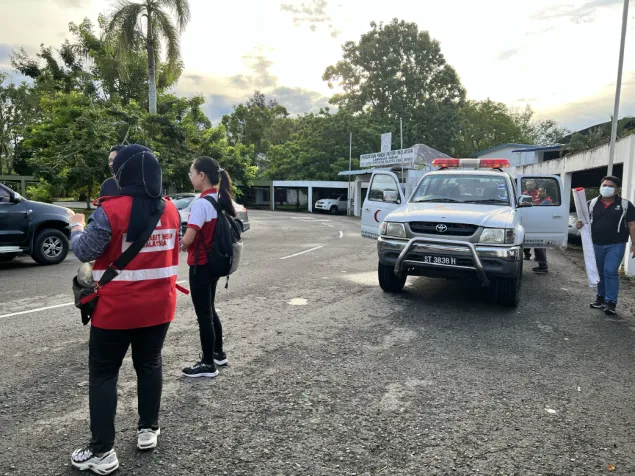
The day began at the crack of dawn when we loaded the cars with teaching-aid materials and other necessary equipment.
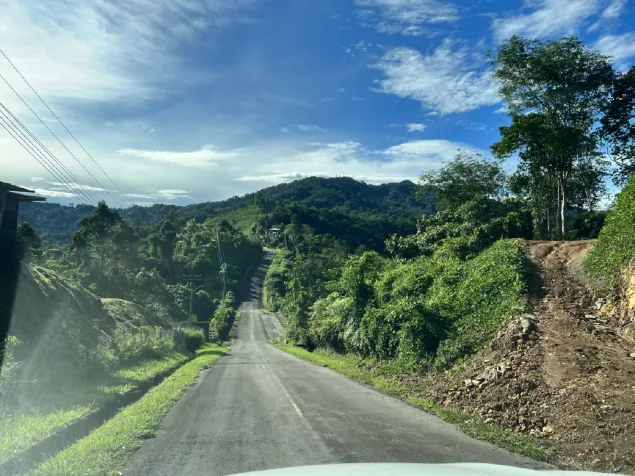
Kampung Tombongon was more than an hour’s drive along winding roads out of Kota Kinabalu, Sabah, where the ICRC Sabah office and the Malaysian Red Crescent Society’s Sabah headquarters are located.
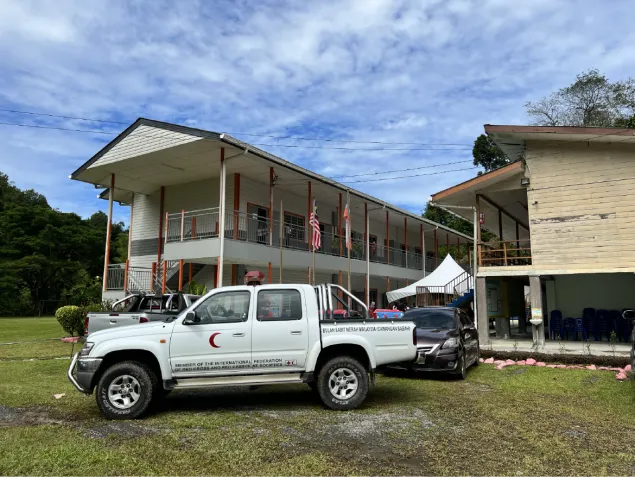
Our first stop of the day was Sekolah Rendah Kampung Tombongon (primary school) where we did a health and hygiene workshop for students aged 7 to 10 years.
Over the years, the ICRC has helped to build the capacity of the Malaysian Red Crescent Society to conduct these workshops independently in various districts of Sabah.
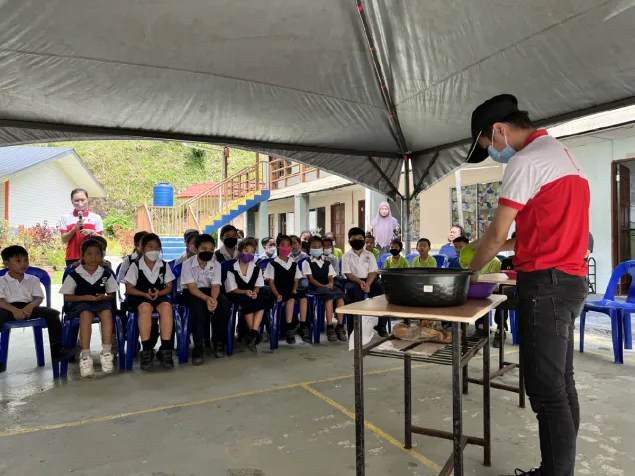
Timothy Jikula, a medical student who dedicates his free time to volunteering with the Malaysian Red Crescent Society, led an activity where children were asked to point out the rights and wrongs of appropriate etiquette after using the washroom and before eating.
As Kampung Tombongon is located in the remote interiors without quick access to clinics or hospitals, it is crucial that the children are equipped with knowledge of good personal hygiene to avoid certain illnesses.
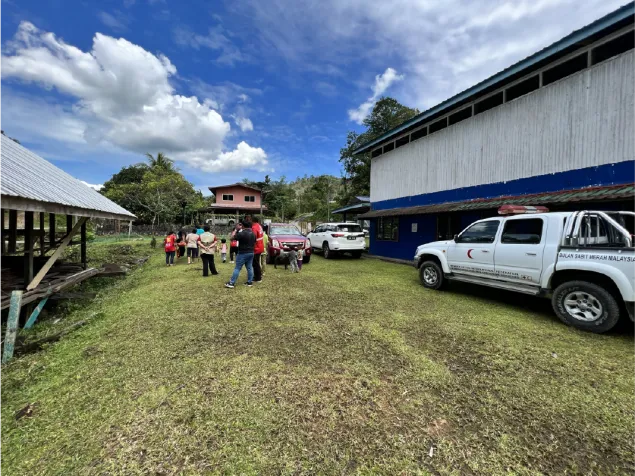
Next on the agenda was First-Aid Training Harmonisasi (FATH) for the community. FATH is different from the conventional first-aid training as it teaches participants how to perform first aid using both household and non-household items available on hand.
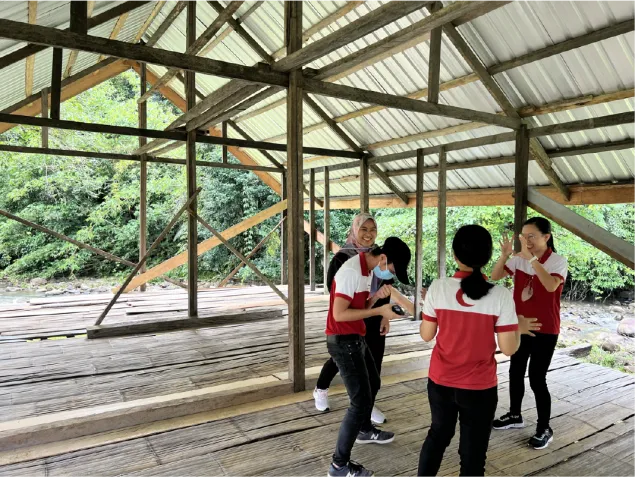
ICRC staff Sitti Rahina Ibrahim, Malaysian Red Crescent Society Sabah’s health project coordinator Brenda Bronica James and volunteers discussed the activities for the day before starting the session.
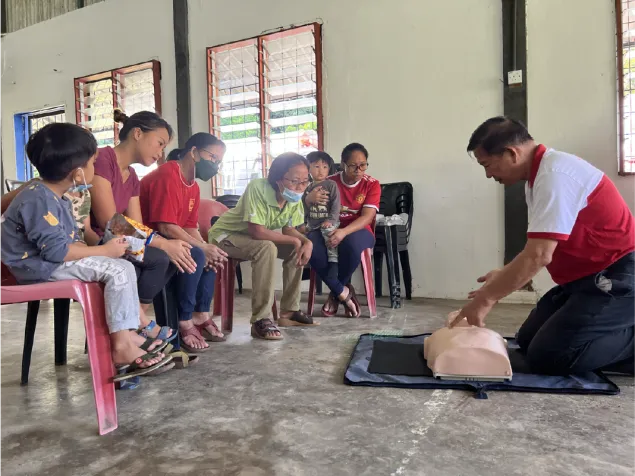
Participants watched with rapt attention as volunteer David Kong Huat Min explained how to resuscitate someone in case of an emergency.
During the workshop, participants were divided into smaller groups to ensure that facilitators and volunteers give individual attention to everyone.
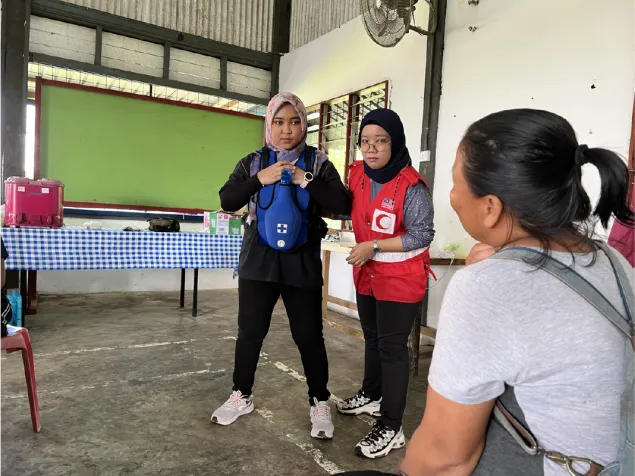
Norsahizah Suntang, a volunteer, and ICRC staff Sitti Rahina Ibrahim answered questions on the Heimlich manoeuvre, a first-aid procedure used to treat upper airway obstructions by foreign objects.
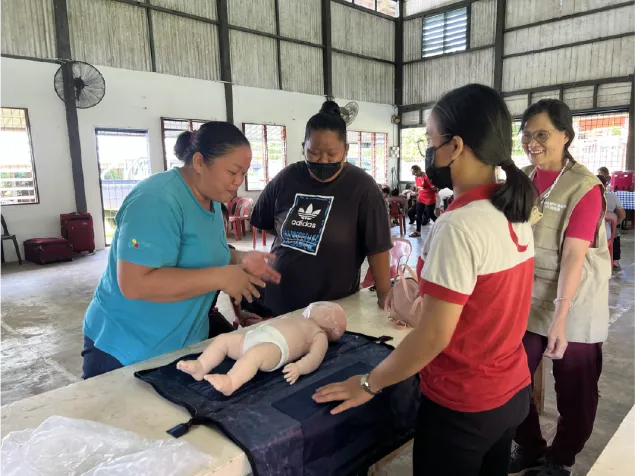
Community health volunteers (on the far right) play an integral part in all our activities with the community.
They are usually people from the community who volunteer as the points of reference for other community members to get help in the period between the workshops.
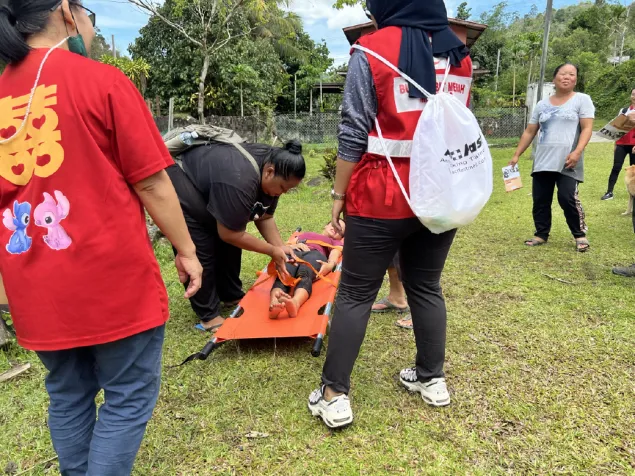
Simulations are one of the key activities done in these workshops. To keep it as real as possible, these are usually conducted unannounced and participants are required to put everything they have learnt to the test as they respond to the emergency.
One of the participants, a nurse from a nearby clinic, had to be stopped from running back to the clinic to call for an ambulance, proving how realistic some of the simulations were.
The ICRC has been active in Sabah since 2013, working with the Malaysian Red Crescent Society, also known as the Persatuan Bulan Sabit Merah Malaysia (BSMM), to organize health and hygiene and community programmes for marginalized communities and those living in remote areas.
We do this with the support of the state's security and health authorities.



